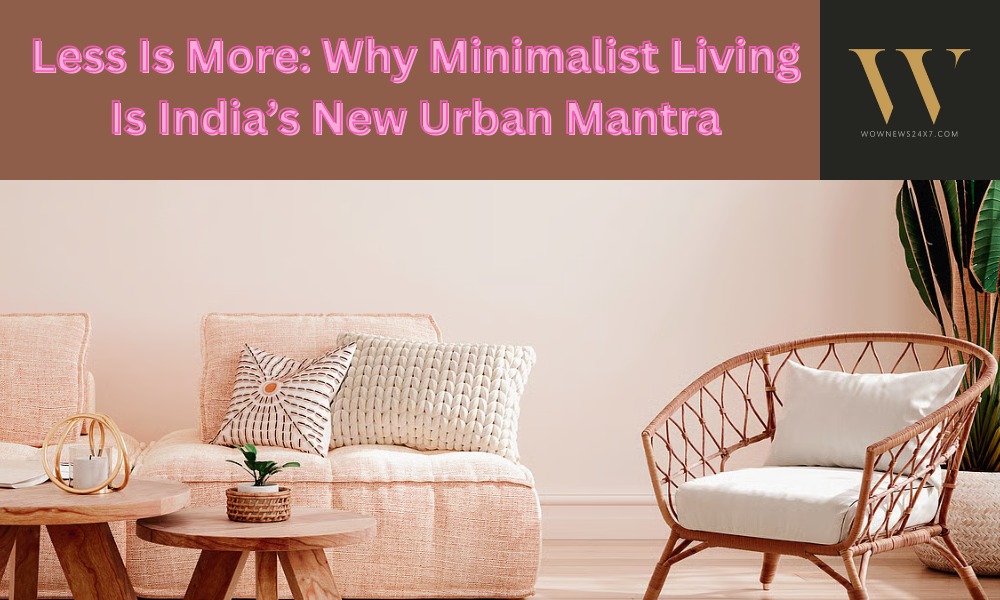Minimalist living is rapidly gaining popularity in India as urban dwellers seek stress relief, sustainable lifestyles, and mental clarity. Influenced by shrinking living spaces, environmental awareness, and cultural philosophies, more Indians—especially younger generations—are adopting minimalism to create peaceful, intentional lives centered on quality over quantity.
The minimalist lifestyle, once perceived as a Western trend, is now making significant inroads into Indian urban centers such as Mumbai, Delhi, and Bangalore. This movement emphasizes simplifying one's life by eliminating clutter, focusing on mindful consumption, and valuing experiences over possessions. Several social, environmental, and cultural factors have converged to spark the surge of minimalism in India.
Rising urbanization has led to smaller homes and more crowded environments, prompting Indians to seek efficient, decluttered living spaces that maximize functionality. Minimalist home designs featuring clean lines, neutral palettes, and multi-purpose furniture are increasingly favored for their ability to create calm and order amid urban chaos.
Growing environmental consciousness also plays a crucial role, as minimalism aligns with sustainable living—reducing waste, supporting eco-friendly products, and encouraging mindful purchasing habits. Young Indians, particularly millennials and Gen Z, prioritize sustainability and wellness, often reflecting these values through capsule wardrobes, ethical fashion, and local artisanal support.
Social media platforms such as Instagram and YouTube have popularized minimalist concepts, spreading awareness and lifestyle tips that resonate with India's digitally connected youth. Moreover, India’s ancient philosophies of Ahimsa (non-violence) and Aparigraha (non-possessiveness) culturally underscore minimalist principles, making the lifestyle a natural fit within the country’s spiritual heritage.
Mental health and well-being are additional drivers. Minimalism’s focus on reducing physical and mental clutter contributes to enhanced focus, reduced stress, and a peaceful home environment—an attractive proposition for those juggling fast-paced urban lives.
Key Highlights:
-
Urban living constraints drive demand for clutter-free, space-efficient homes.
-
Increased environmental awareness fosters sustainable consumption and waste reduction.
-
Social media and influencers boost adoption through education and inspiration.
-
Millennials and Gen Z Indians prioritize experiences, wellness, and sustainability over material wealth.
-
Minimalist fashion and capsule wardrobes gain popularity for ethical, conscious consumerism.
-
Ancient Indian philosophies echo modern minimalist values, bridging tradition and contemporary lifestyles.
-
Mental health benefits include reduced anxiety, improved focus, and a tranquil home environment.
Minimalism is transforming Indian homes from mere living spaces into sanctuaries of calm and mindful living.
Sources: RxRejuvenate, Times of India, Amordesign.org, Jugyah, Free Press Journal, India Today
